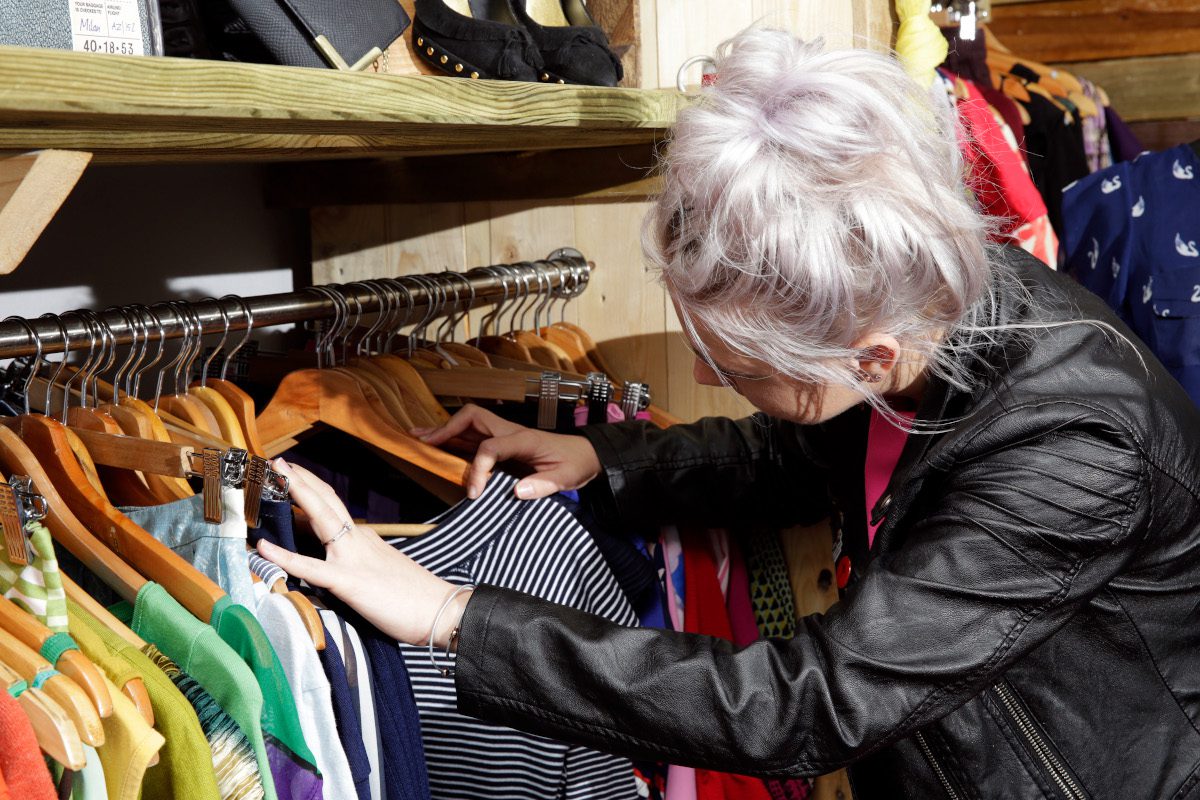
‘Style it out with second-hand’ is the message from Zero Waste Scotland as, so the group says, the movement against fast fashion appears to be growing across the country.
The Scottish Government-funded advisory body said Scottish shoppers increasingly recognise the threat of fast fashion and are thereby prioritising shopping second-hand.
The number of people who agree second-hand is vital to protect the environment has seemingly increased to 59% in September 2020, from 47% in March 2020. Representing a 12% increase in six months, according to research[1] by Zero Waste Scotland.
The group is urging shoppers to opt for a slower approach to consumption during the month of #Slowtober, to coincide with the increasing popularity of slow fashion, a new global trend.
Over the past 12 months, the term “slow fashion” has been responsible for over 90 million social media impressions according to online fashion search platform Lyst, further suggesting the beginning of a shift in shopping behaviours on a global scale. Since the beginning of 2020 there has been a growth in searches for second-hand fashion worldwide, with a 37% increase in searches for sustainability related keywords such as ‘upcycled fashion’, and ‘second-hand’.
Zero Waste Scotland manages the Revolve quality standard for second-hand stores in Scotland. Revolve certification is awarded to stores that meet high standards in safety, cleanliness and service, giving shoppers that extra reassurance to shop second-hand first.
Research[1] carried out for Revolve discovered, when it comes to second-hand shopping, quality and cleanliness are more important than ever, as stated by a huge 76% of respondents to the survey. On top of that, 57% of shoppers are embracing helping good causes and 39% shop second-hand for the good of their local community.
By shopping second-hand consumers can not only extend the life of items, they can also bag a bargain, reduce their carbon footprint and save quality items from going to waste.
Around four fifths (80%) of Scotland’s carbon footprint comes from all the goods, materials and services it produces, uses and often throws out after minimal use. This includes the extraction, transporting and manufacture of materials and represents the single greatest cause of the climate crisis. By making items last longer and embracing slow fashion, we can help to improve Scotland’s green credentials and reduce our carbon footprint.
Catherine Bozec, consumer re-use spokesperson for Zero Waste Scotland, said:
“If you haven’t considered second-hand shopping, then give it a try. There’s a huge range of choice and outfits that can be unique to you when you shop for pre-loved items and the best thing about it is that it doesn’t come at the expense of the planet. Don’t follow the fast fashion herd and style it out with second-hand.
“It’s fantastic to see an increase in consumer awareness of the importance of shopping sustainably, and the impact this has on the environment. Increasing numbers of consumers are starting to think twice before buying new and we are keen to see growth in this behaviour shift during our #Slowtober campaign and beyond.
“By visiting stores that have been Revolve certified, consumers can be confident that they will find products have gone through rigorous checks to ensure they are as good as new.”
Awarded by Zero Waste Scotland, the Revolve certification is the quality guarantee for pre-loved items. For anyone wishing to find out more about Revolve, please visit the website for a list of stores and contact details: www.revolvereuse.com
Notes
[1]1000 people in Scotland were interviewed in March 2020 and September 2020







